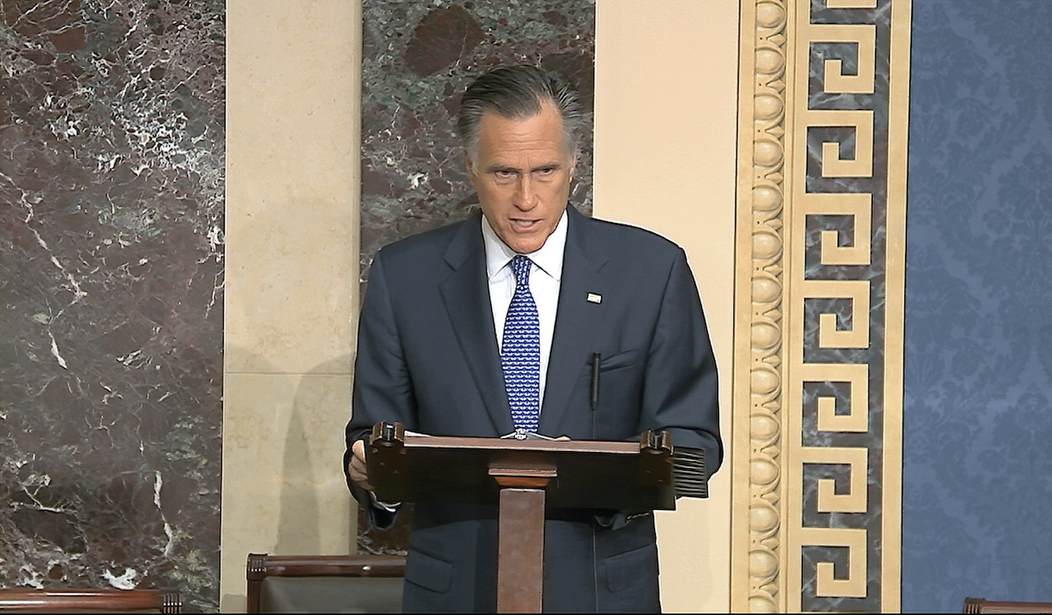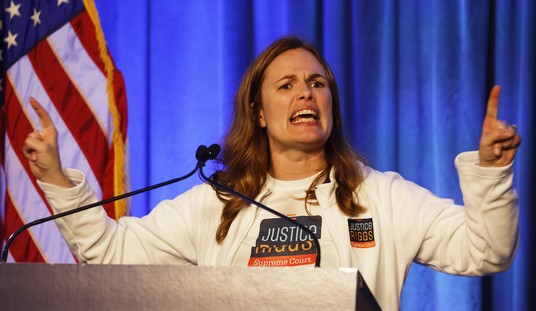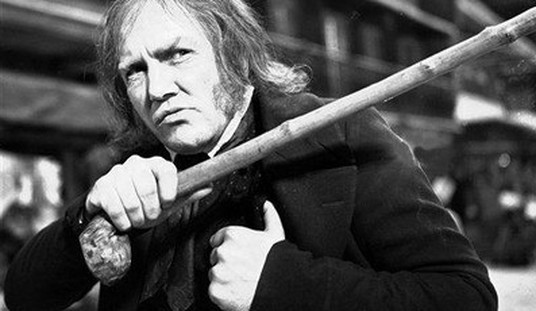In 1919, Irish poet William Butler Yeats, in the opening of his poem The Second Coming, wrote these words:
Turning and turning in the widening gyre
The falcon cannot hear the falconer;
Things fall apart; the centre cannot hold;
Mere anarchy is loosed upon the world,
The blood-dimmed tide is loosed, and everywhere
The ceremony of innocence is drowned;
The best lack all conviction, while the worst
Are full of passionate intensity.
Now, think about Yeats' words in the context of American politics at this historic juncture. One could argue that "passionate intensity" is something of an understatement at the moment, although the "...best lack all conviction" side isn't that much of a reach.
Now we read about the decision of Republican moderate Mitt Romney to not seek re-election:
Mitt Romney’s retirement shines a glaring spotlight on the potentially bleak future of the Senate’s ideological center in both parties. If Joe Manchin and Kyrsten Sinema follow him out the door, it will get worse.
Manchin, a centrist Democrat, and the Independent Sinema are both still mulling whether to run again. Like Romney, they could be replaced by senators on either end of the ideological spectrum — almost surely a Republican in Manchin’s West Virginia.
And as maligned as Romney, Manchin and Sinema are by one party or the other’s faithful, the possible 2024 departures of two or three of them would change the Senate, which passed several notable bipartisan deals in the last Congress.
“You lose the center, you lose the moderates, you’re screwed. You really are screwed,” Manchin said in an interview. “I’m hoping the voters will wake up.”
Unlike Mark Antony, I come here to neither bury Romney nor praise him; in fact, I'm not going to discuss Romney at all, except as a symptom of the larger issue. Instead, let's think a bit about what all this really means.
Is the center really giving way? Or is it just moving? Friends, Americans, countrymen, lend me your ears!
Most of us who follow political and social issues are familiar with the concept of the Overton Window. There's an argument to be made that the political center in the United States today is not disappearing but shifting. As an example, a Joe Manchin, only a few short decades ago, would have been in the mainstream of the Democratic Party, and the Republican mainstream was represented by pols like George H.W. Bush and Nelson Rockefeller. But while it's true that the parties have pulled away from the center, it seems obvious that the Democrats have dragged the Overton Window to the left.
The Overton Window can have some strange effects. One of my best friends is a deep-blue, East Coast urban progressive; in spite of our rather drastic political differences, we have more in common in other areas and have maintained a rather odd, Oscar Madison/Felix Unger friendship for a couple of decades. My friend once complained to me that Barack Obama was well to the right of what he would have preferred; that's because his own politics had pulled him pretty far to the left.
That applies to groups as well as individuals, and it works in both directions. We are seeing the last remnants of the old center fade away, but there will be a new center; there cannot help but to be a middle ground. Romney will retire, and likely be replaced by a more conservative Republican; Joe Manchin faces a difficult re-election in deep-red West Virginia, where he will almost certainly be replaced by a conservative Republican in the form of someone like Governor Jim Justice. Arizona's political scene seems somewhat in flux at the moment, but it's not at all unlikely that a three-way race could hand that Senate seat to someone like Kari Lake.
But while the center is still present, there are, in each election, fewer people representing that center. But there's something to be said for having clearly defined alternatives, yes? When considering these times, though, one may want to think about not only Yeats but also the Great War figure, French Field Marshal Ferdinand Foch. At the first Battle of the Marne, when he was hard-pressed by the Germans, Foch sent these words back to Marshal Josef Jaffre:
Mon centre cède, ma droite recule, situation excellente, j'attaque. (My centre is giving way, my right is retreating, excellent situation, I am attacking.)
For every major historical crisis, there is opportunity. That's what Foch was saying. In the next several cycles, this departure of the center will present the American electorate with some pretty clear alternatives. That's what we, as conservatives and libertarians, should be thinking about, not only in the 2024 elections but in every election thereafter. The calculus seems simple enough: If a candidate's position would preserve or restore liberty, we should support them; if not, we should not.
Incidentally, you can read the entirety of Yeats's poem The Second Coming here.














